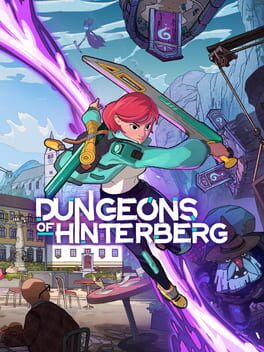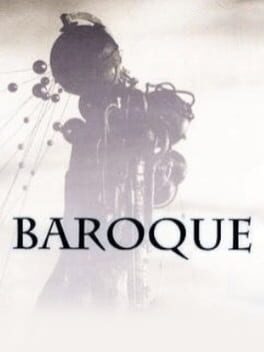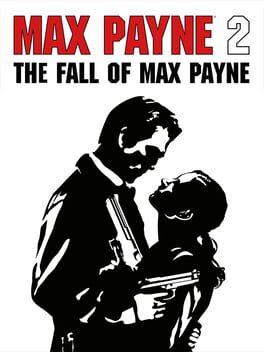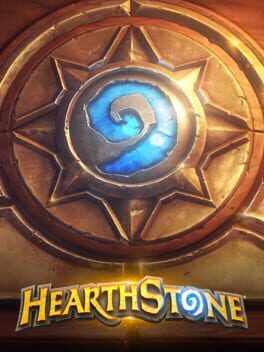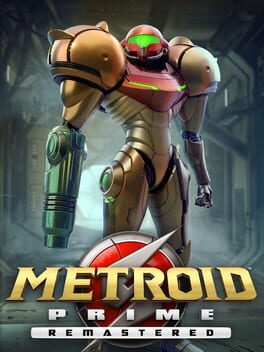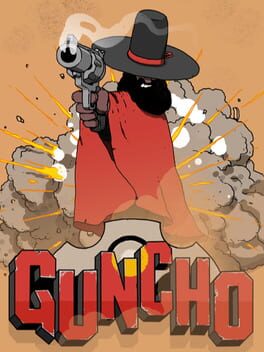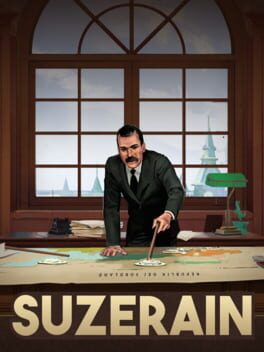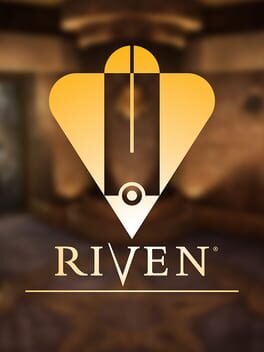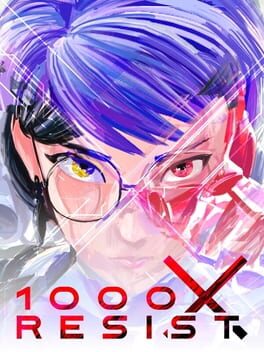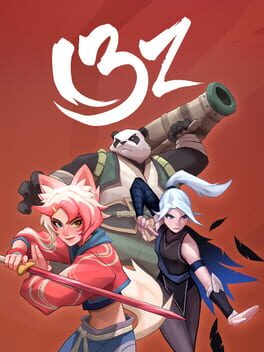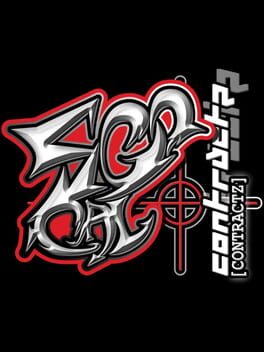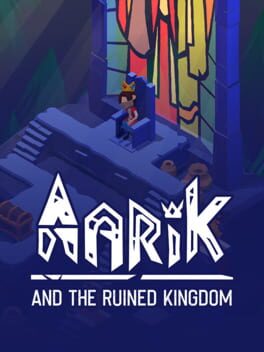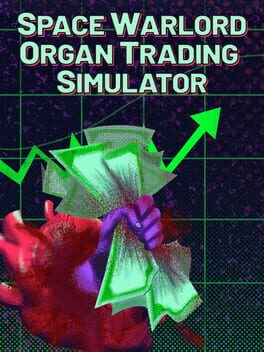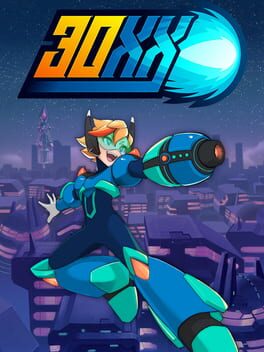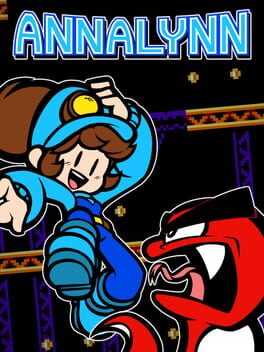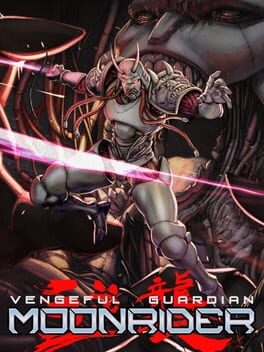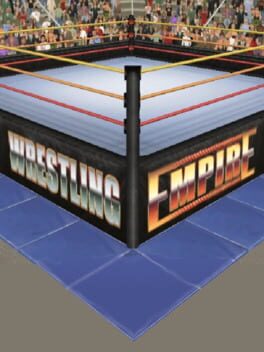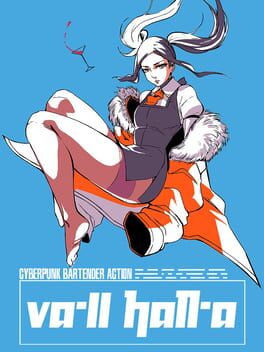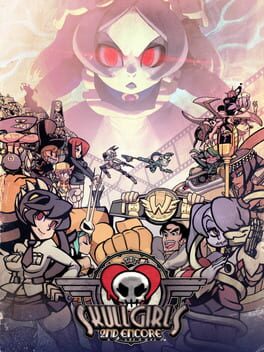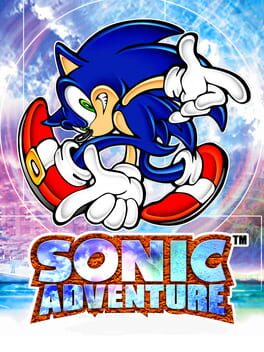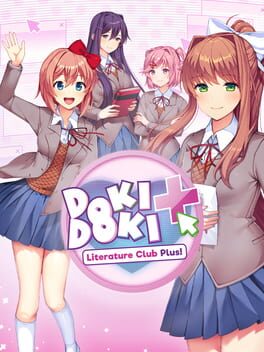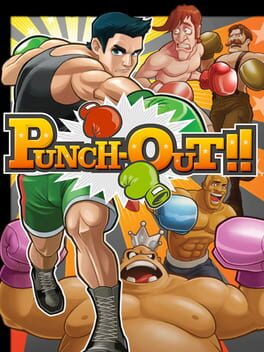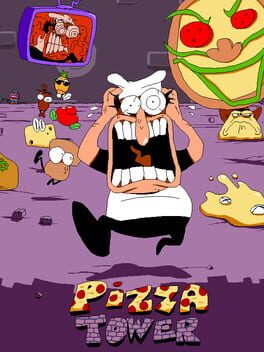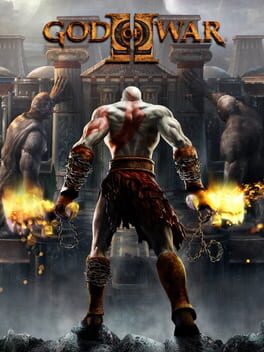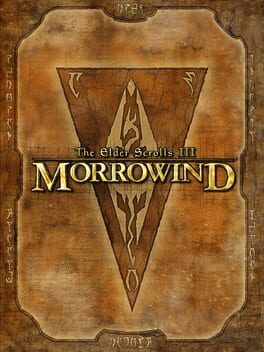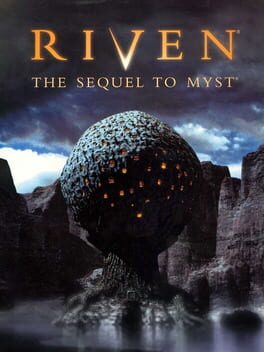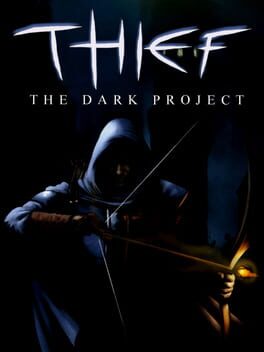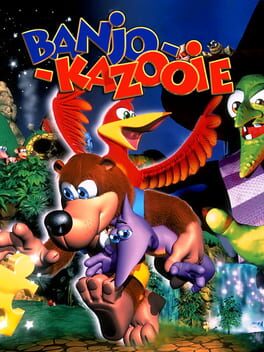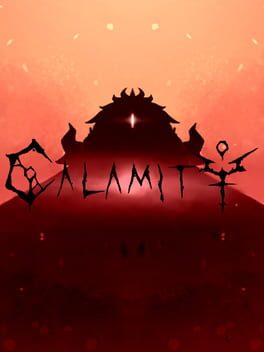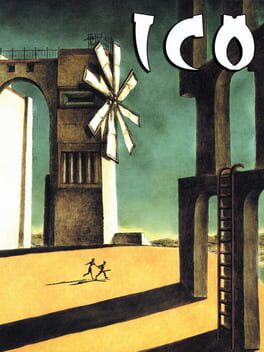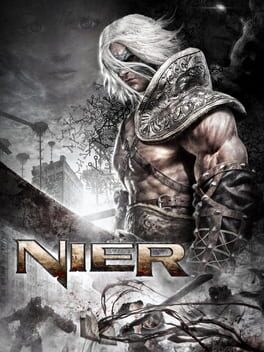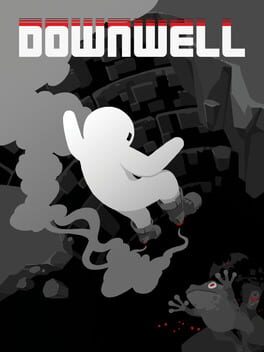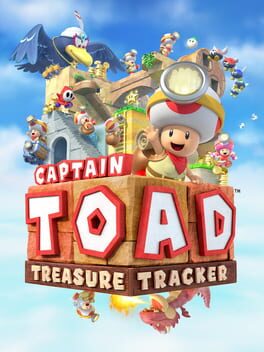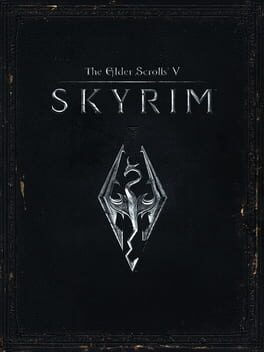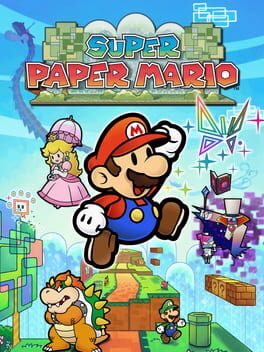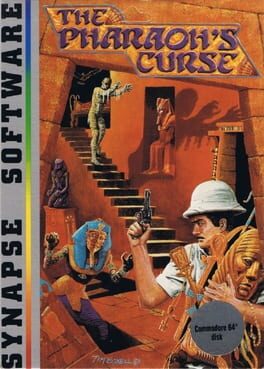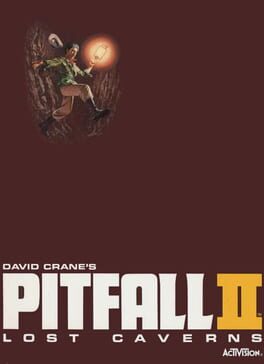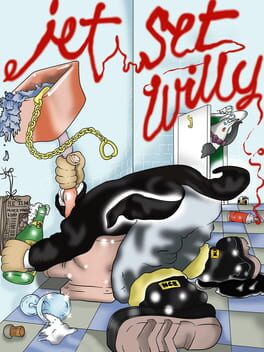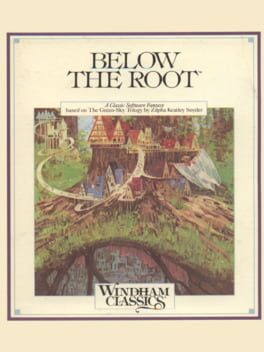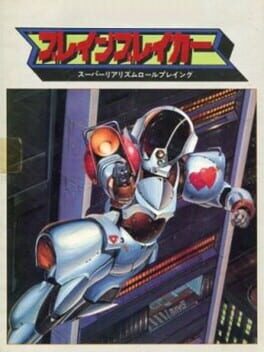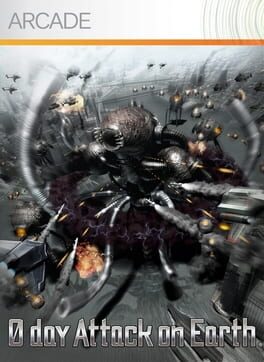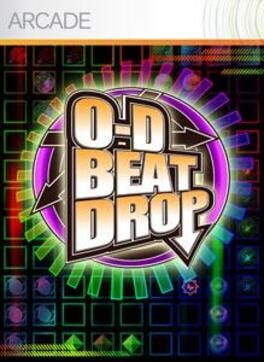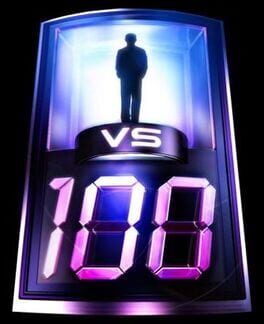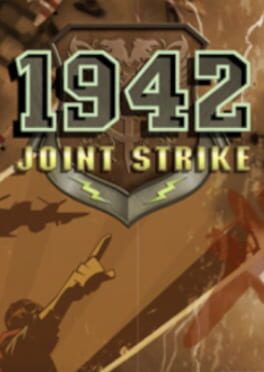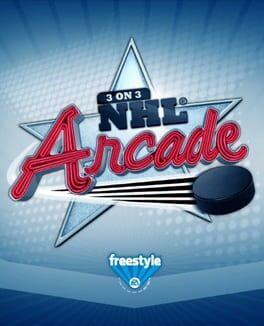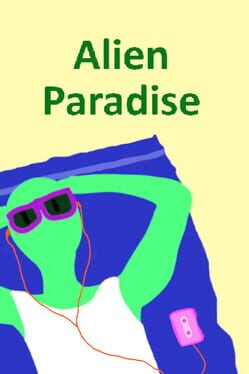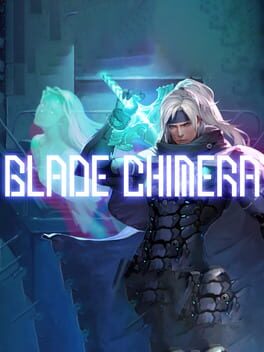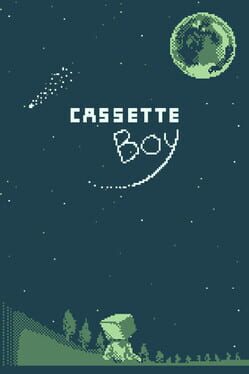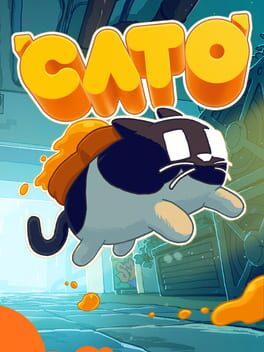Silverhand
BACKER
815 reviews liked by Silverhand
When Microbird Games first unveiled their debut game Dungeons of Hinterberg, many were quick to draw comparisons to Zelda, due to its seemingly basic hack-and-slash gameplay, roster of magical abilities, charming mountain town setting, and of course its titular dungeons. However, having spent a little over 13 hours with it, I'd say it's closer to Persona than anything else.
Dungeons of Hinterberg is set in the once-sleepy Austrian village of Hinterberg which has now become a veritable nexus for tourism after a font of magic was uncovered after 25 dungeons randomly appeared throughout the area. You play as junior lawyer Luisa currently on vacation to Hinterberg and hoping to take advantage of the getaway adventure destination and leave her boring life behind.
From here you are then treated to a Persona-like daily schedule where you tackle a dungeon in the morning and socialize with the town's residents and fellow tourists in the evening. Much like Persona, building a friendship with each of these people will earn you unique rewards and upgrades to your armor, weapons, and magic that you can take into the next dungeon. Of course, both the social aspects and combat in Hinterberg are not quite as involved as the series that inspired can be, but it certainly elevates what could have otherwise been a tepid action-adventure premise.
As you might imagine, the biggest thing that Dungeons of Hinterberg has going for it is its titular dungeons. There are "25" in total and each of them has something new to offer, either in gameplay mechanics, puzzles, or sometimes even perspectives as some dungeons shift you to an isometric Diablo-like view for added flavor. Though there are some dungeons I liked less than others, it's truly impressive work that I am personally unable to claim that there's a bad one in the bunch! It's clear that these dungeons are what the team at Microbird spent the most time and iteration on and it pays off in spades, which is good because they, thankfully, take up the bulk of the game.
The social aspects on the other hand are less impressive and if many of the characters (and Luisa herself) weren't charming, they would feel more like unnecessary padding than they are. What helps these along also is the overarching mystery and lore surrounding the titular dungeons and their presence in this otherwise beautiful yet inconspicuous Austrian village. The nature of the magic that permeates this particular area of Austria and the consequences of exploiting it for profit lead to some surprisingly deep and involved plot points with powerful themes and messages interspersed throughout.
What is decidedly less impressive, however, is the game's combat. Of course, the magical abilities and special moves do help keep things interesting, at least in the first 5 hours or so, but the incredibly basic melee combos and the frequency of mandatory combat encounters grate on the overall experience, especially in the back half of the game. It's fortunate that the rest of the game around this is as strong as it is otherwise this could well be a dealbreaker for many.
The art style is also something that may take some time to adjust to. Aesthetically, the Mœbius comic-book-esque look is striking, but can initially be quite jarring to look at with its strong colors and defined lines, more so than other games that use this kind of style.
Regardless, Dungeons of Hinterberg is an excellent debut project from Microbird Games exuding confidence and charm in its design and particularly its dungeon exploration and puzzle-solving, despite its lackluster combat.
8/10
Dungeons of Hinterberg is set in the once-sleepy Austrian village of Hinterberg which has now become a veritable nexus for tourism after a font of magic was uncovered after 25 dungeons randomly appeared throughout the area. You play as junior lawyer Luisa currently on vacation to Hinterberg and hoping to take advantage of the getaway adventure destination and leave her boring life behind.
From here you are then treated to a Persona-like daily schedule where you tackle a dungeon in the morning and socialize with the town's residents and fellow tourists in the evening. Much like Persona, building a friendship with each of these people will earn you unique rewards and upgrades to your armor, weapons, and magic that you can take into the next dungeon. Of course, both the social aspects and combat in Hinterberg are not quite as involved as the series that inspired can be, but it certainly elevates what could have otherwise been a tepid action-adventure premise.
As you might imagine, the biggest thing that Dungeons of Hinterberg has going for it is its titular dungeons. There are "25" in total and each of them has something new to offer, either in gameplay mechanics, puzzles, or sometimes even perspectives as some dungeons shift you to an isometric Diablo-like view for added flavor. Though there are some dungeons I liked less than others, it's truly impressive work that I am personally unable to claim that there's a bad one in the bunch! It's clear that these dungeons are what the team at Microbird spent the most time and iteration on and it pays off in spades, which is good because they, thankfully, take up the bulk of the game.
The social aspects on the other hand are less impressive and if many of the characters (and Luisa herself) weren't charming, they would feel more like unnecessary padding than they are. What helps these along also is the overarching mystery and lore surrounding the titular dungeons and their presence in this otherwise beautiful yet inconspicuous Austrian village. The nature of the magic that permeates this particular area of Austria and the consequences of exploiting it for profit lead to some surprisingly deep and involved plot points with powerful themes and messages interspersed throughout.
What is decidedly less impressive, however, is the game's combat. Of course, the magical abilities and special moves do help keep things interesting, at least in the first 5 hours or so, but the incredibly basic melee combos and the frequency of mandatory combat encounters grate on the overall experience, especially in the back half of the game. It's fortunate that the rest of the game around this is as strong as it is otherwise this could well be a dealbreaker for many.
The art style is also something that may take some time to adjust to. Aesthetically, the Mœbius comic-book-esque look is striking, but can initially be quite jarring to look at with its strong colors and defined lines, more so than other games that use this kind of style.
Regardless, Dungeons of Hinterberg is an excellent debut project from Microbird Games exuding confidence and charm in its design and particularly its dungeon exploration and puzzle-solving, despite its lackluster combat.
8/10
Baroque
1998
Going mad? Don't worry. Everyone has that. Everyone has a... baroque of theirs after all.
But what is baroque? And Why is baroque?
Baroque is a distorted substance that grants people the will to keep living in this post apocalyptic world and for that, to stay alive: You will kill, destroy, burn and murder.
In a world where god was actually a being that is the heart of the world and humans choose to tamper it with taking it's ability to feel "pain" resulting a giant distortion wave that turns majority of the living things into grotesques and also condemning the world into an eternal wheel of distorted reincarnation
Even tho, it's not possible to save this world entirely, we are choosen and sent by the council of angels that built by humanity to destroy the god. But can we erase this world without going mad with guilt and insanity in this unending cycle? Or should we choose our own and actually embrace this world?
Yeah that's my summary of the baroque(can be faulty at some places tho), but tbh you won't find most of the information in the game without looking at outside sources. It tells it's story more like a dark souls titles where if you don't find a specific npc, you won't understand a thing what's going on in this game (and to do that prepare to read guides). Honestly, this is not my favorite kind of storytelling and it's roguelite gameplay is ten times are not (this the only one I had played until now. Bc I hate anything rogue).
Then why baroque? That's simple. Because I am an adventurer at heart and the distorted world of baroque locked my interests in the moment I saw it's gameplay videos. Even tho I haven't played smt3, it kinda gave similar feelings to me where you really want to know what the heck is going on and how this world operates and I love that kind of thing where you slowly piece by piece see the world's deeper parts and in that sense it didn't disappointed me. It's variety is vast and somehow game manages to surprise you with it's dungeon gimmicks and monsters even in it's last hours unlike something like persona(tbh I only played 3 and 4 ).
Anyway, Did you know that this game hugely inspired by the dragon-quest spin-off Torneko? I thought it was smt but I guess it's not good to prejudge things (just like berserk fandom whenever they see a big sword or grotesque monsters, they scream: omg berserk reference??? Even tho berserk didn't invent them... I still love berserk But I just hate them)
So back to the game, how is gameplay? It's... alright. You have only 3 gameplay mechanics. Use item, Throw item, Attack with item. That's it.
Also movement is tank movement but with strafing buttons included.
How the most of the gameplay goes is, you attack an enemy, then back up or strafe around it to dodge it's attack, then attack back with items or use/throw them for status effects... rince and repeat
What makes the baroque's gameplay interesting is it's actually an item management game rather than an action game. Game's attack system is entirely dependant on the status effects and elements. Physical, lust, confuse, burn, freeze, paralyse, stomachache, randomized, teleport and more. And of course this effects are stored in the items you find or combine.
Oh also there are some small gameplay elements as well, there is a robot? That can combine things and give a item with random stats, there are npc's that give specific rewards to specific items, there are "cores" where you can throw your items and it will send that item to entrance that will make your next game session much easier(thankkkk goooooddddd)
But you can't be lazy. Why? Because in this game you have not just a health bar but also a vitality bar that goes down every second and that's where the tension comes in. You need to kill enemies fast enough or find heart items to refill it back before you die.
Combine this with the entirely randomized nature of this game like sometimes game decides to prank you and spawn you into a group of monsters or in front of a canon trap machine, also combination with the one time save feature(you can only save once and load that save once) and that's what changes your current run session to great or awful (ngl sometimes rng really really hate you to the point trying to cheaply kill you).
Honestly it's a short and still an easy game despite it's rng issues as long as you play it like a dark souls game(first slow titles to be exact) where you stay cautious and don't be too greedy and always look out for enemy openings, then you won't die many times or even once. It's mostly fair... Mostly... (Aside from the rng examples I gave of course...).
For finishing this game, I played 5 runs for it(only 2 deaths where one of them is rng's fault and other is mine with forgetting to save). But honestly you only need 2 runs to finish it(tho you need to kill yourself couple of times sometimes bc story progression demands it, I didn't include them). It's that short but that's what makes it great because of it's good pacing in my opinion. Otherwise it could get old easily because of it's simplicity and that's what I heard about the ps1 version of the game where there are more floors/levels to go through that bloats the game.
Then why the f.... it took that long for me to finish this short game? That's because... turns out when you become an adult, you can buy the things you wished a long time ago but your time equally goes down.
Anyway to not make the rest of the review depressive, game ends somehow similar to Gunvalkyrie. A sega game that have a dystopic steampunk theme. I assume it's a coincidence, but it suprised me as well. That's what I wanted to say
Lastly, is it worth playing? For me yes, but for you I don't know. But maybe I would recommend to play once and at least do a one run to see and experience what it's world is about. After all there is not many games with the concept of madness to experience.
But what is baroque? And Why is baroque?
Baroque is a distorted substance that grants people the will to keep living in this post apocalyptic world and for that, to stay alive: You will kill, destroy, burn and murder.
In a world where god was actually a being that is the heart of the world and humans choose to tamper it with taking it's ability to feel "pain" resulting a giant distortion wave that turns majority of the living things into grotesques and also condemning the world into an eternal wheel of distorted reincarnation
Even tho, it's not possible to save this world entirely, we are choosen and sent by the council of angels that built by humanity to destroy the god. But can we erase this world without going mad with guilt and insanity in this unending cycle? Or should we choose our own and actually embrace this world?
Yeah that's my summary of the baroque(can be faulty at some places tho), but tbh you won't find most of the information in the game without looking at outside sources. It tells it's story more like a dark souls titles where if you don't find a specific npc, you won't understand a thing what's going on in this game (and to do that prepare to read guides). Honestly, this is not my favorite kind of storytelling and it's roguelite gameplay is ten times are not (this the only one I had played until now. Bc I hate anything rogue).
Then why baroque? That's simple. Because I am an adventurer at heart and the distorted world of baroque locked my interests in the moment I saw it's gameplay videos. Even tho I haven't played smt3, it kinda gave similar feelings to me where you really want to know what the heck is going on and how this world operates and I love that kind of thing where you slowly piece by piece see the world's deeper parts and in that sense it didn't disappointed me. It's variety is vast and somehow game manages to surprise you with it's dungeon gimmicks and monsters even in it's last hours unlike something like persona(tbh I only played 3 and 4 ).
Anyway, Did you know that this game hugely inspired by the dragon-quest spin-off Torneko? I thought it was smt but I guess it's not good to prejudge things (just like berserk fandom whenever they see a big sword or grotesque monsters, they scream: omg berserk reference??? Even tho berserk didn't invent them... I still love berserk But I just hate them)
So back to the game, how is gameplay? It's... alright. You have only 3 gameplay mechanics. Use item, Throw item, Attack with item. That's it.
Also movement is tank movement but with strafing buttons included.
How the most of the gameplay goes is, you attack an enemy, then back up or strafe around it to dodge it's attack, then attack back with items or use/throw them for status effects... rince and repeat
What makes the baroque's gameplay interesting is it's actually an item management game rather than an action game. Game's attack system is entirely dependant on the status effects and elements. Physical, lust, confuse, burn, freeze, paralyse, stomachache, randomized, teleport and more. And of course this effects are stored in the items you find or combine.
Oh also there are some small gameplay elements as well, there is a robot? That can combine things and give a item with random stats, there are npc's that give specific rewards to specific items, there are "cores" where you can throw your items and it will send that item to entrance that will make your next game session much easier(thankkkk goooooddddd)
But you can't be lazy. Why? Because in this game you have not just a health bar but also a vitality bar that goes down every second and that's where the tension comes in. You need to kill enemies fast enough or find heart items to refill it back before you die.
Combine this with the entirely randomized nature of this game like sometimes game decides to prank you and spawn you into a group of monsters or in front of a canon trap machine, also combination with the one time save feature(you can only save once and load that save once) and that's what changes your current run session to great or awful (ngl sometimes rng really really hate you to the point trying to cheaply kill you).
Honestly it's a short and still an easy game despite it's rng issues as long as you play it like a dark souls game(first slow titles to be exact) where you stay cautious and don't be too greedy and always look out for enemy openings, then you won't die many times or even once. It's mostly fair... Mostly... (Aside from the rng examples I gave of course...).
For finishing this game, I played 5 runs for it(only 2 deaths where one of them is rng's fault and other is mine with forgetting to save). But honestly you only need 2 runs to finish it(tho you need to kill yourself couple of times sometimes bc story progression demands it, I didn't include them). It's that short but that's what makes it great because of it's good pacing in my opinion. Otherwise it could get old easily because of it's simplicity and that's what I heard about the ps1 version of the game where there are more floors/levels to go through that bloats the game.
Then why the f.... it took that long for me to finish this short game? That's because... turns out when you become an adult, you can buy the things you wished a long time ago but your time equally goes down.
Anyway to not make the rest of the review depressive, game ends somehow similar to Gunvalkyrie. A sega game that have a dystopic steampunk theme. I assume it's a coincidence, but it suprised me as well. That's what I wanted to say
Lastly, is it worth playing? For me yes, but for you I don't know. But maybe I would recommend to play once and at least do a one run to see and experience what it's world is about. After all there is not many games with the concept of madness to experience.
Super Metroid
1994
Thank you to QuentTheSlayer for giving me the final push that made me play through Super Metroid.
The Super Nintendo was probably the ultimate time of refinement for Video Games. So many game series, that are now held up as timeless classics found their definitive formula on Nintendo's second console generation. Mario, Zelda, Final Fantasy and of course today's subject: Metroid. Super Metroid is still considered by many to be the peak of the metroidvania genre, and it's admittedly strange to realize that I had never played it. Even as a huge fan of the series, I just always put it off to the side. I'll get around to it eventually. After all: In the same amount of time it would take me to get into Super Metroid, I could just replay Fusion for the 50th time. I haven't played Prime 2 in a hot minute. What's that shiny new Dread game that just came out ? And so on and so on. But then in 2024, I set aside the excuses, committed, and I can now say that I have finally finished Super Metroid.
Its hard to put into words how much of a mindfuck my first playthrough of Super Metroid was. This almost 30-year-old Super Nintendo game has you in a chokehold the moment the title screen appears. The pan across a quiet, dark laboratory. 1994. Nintendo. Presents. Metroid 3. SUPER METROID. Right there, with the bodies of dead scientist strewn across the floor and the baby metroid trapped in a glass tube, the title of the game towers in gigantic, bold letters. It's one of the most striking introductions to a Video Game I have ever seen. A statement, before you even press a single button.
Of course this strong in medias res opening is only possible due to the fact that Super Metroid is the canonical third entry of the series, continuing on from the ending of Metroid 2: Return of Samus. And the game does an excellent job of catching you up to the events of the previous games. In a moody monologue, Samus recounts her fight against Motherbrain in her first adventure, her mission to eradicate the Metroid species for good and her sparing the last baby Metroid at the end. She brings said baby Metroid to the Galactic Research Station Ceres. There, the baby Metroid is supposed to be further studied while Samus is off hunting another bounty. Of course, she barely makes it out the door before receiving the call that Ceres is under attack. Ridley and his space pirates have decimated Ceres in order to capture the last Metroid. It's here where Super Metroid first gives you control over Samus in an action packed and atmospheric opening. She blasts through the invading space pirates and storms into an inevitable confrontation with long time nemesis Ridley. After an early sneak peek at this late game boss fight, Ridley flees with the baby Metroid in his claws. Samus follows in hot pursuit and lands on the planet Zebes. The setting of the original Metroid. This series story telling has always been and would continue to be very subtle, but even this opening stands tall among its peers in terms of how much you can get across just through a quick opening text crawl and pure gameplay. Really, the recap from our badass heroine is the only dialogue you will get across the entire game, and yet it still manages to tell an engaging story as you make your way down through the underground tunnels of Zebes.
Zebes is what all metroidvania maps should aspire to be in my opinion. Isolating, with long, winding corridors and incredibly distinct environments. This map is so well-designed that I rarely felt lost or directionless even when I wasnt exacly sure what my next step was. The map screen is there, but it does the bare minimum to give you any general information on the environment. Because it doesn't have to tell you more. The drive to explore and the invisible hand of the developers guiding you are enough. Very, very rarely did I find myself lost as to where to go next and the few times that the game had me stumped, I can attribute to my general impatients I have been trained on due to modern video games. If I spend more than 30 minutes figuring out the way forward, then it must be bad game design, right ?. Fuck you, David Jaffe. By paying close attention to the game, you can always intuit where your way forward is. It's a masterstroke of game design.
The other side of gameplay besides navigating the game world, is combat and finding upgrades. Because Samus isnt badass enough already. That was Metroids bread and butter from the very beginning really. Super doesn't hugely change the formula, but still excels in teaching you its mechanics naturally. The game has you collect all the now famous Metroid tools like Super Missiles, the Grapple Beam and so on, while always showing you how to use them with a reward that seems just out of reach, right after you got that shiny new upgrade. Again, all without a single interruption or textbox. If somebody had to nitpick any aspects of the gameplay, it would probably have to do with Samus jump and the way you switch through different weapon modes. Firstly: Samus jump arc is a weird one to get used to for sure, since she gets an unusual amount of air time for a 2D platformer. The standard jump, which can also be altered into a summersault forward, seems very stiff as well. It almost feels like the Castlevania 1 jump arc as if some weirdo happend to turn on low gravity. Weird maybe, but those quirks still very much lend themselves to the often tubelike level design of Zebes and I rarely had any problems with jumping up to ledges or across platforms. The second, more annoying nitpick would probably be how you switch weapons via the select button. It's an awkward solution that had me often fumble around when I wanted a specific weapon equipped, but it's not a dealbreaker either, just something I wished was a bit better by default. Oh, and there is a run button. Never forget that you have a run button. It had me stuck for a bit and you will thank me later, fellow non-manual readers. Those minor flaws aside, the gameplay is incredibly rewarding to master and once you do master it, the real meta game of Super Metroid begins. Sequence Breaking.
Again: It's an aspect of the genre that Metroid is already famous for and its the game that popularized it, but Super Metroid does it on a whole other level. This game has one technique in particular, one you unknowingly have access to from the very beginning, that is designed to break the game's intended progression. It's a tricky one to execute, and the game will teach it to you in an organic way at some point. Once you fully master it, you might as well throw all preconceived notions out the window that this game was ever linear to begin with. Already deep into my second playthrough, I feel the effects of playing at a higher level. Upgrades and bosses, that seemed so far away in the beginning, can now be acquired basically as early or as late as you want to. The genius decision of teaching you this high level play during your first trip through Zebes does wonders for replayability. Pay attention and the game will infinitely reward you for it. You might of course go to areas you're not equipped for yet, but if you persevere, you get the best abilities incredibly early. Risk vs Reward, entirely on the player's own terms. Genius.
I honestly didn't expect to sing this game's praises so much, and I still haven't talked about the incredible sprite work or the god tier soundtrack. Two aspects I can not find a single flaw in, and talking about them would have me repeating myself again with only superlatives. The game is one of the most gorgeous games I have ever seen, it's like a immaculate painting. The soundtrack gives me goosebumps just thinking about it, and taking the elevator down the Brinstar for the first time is already one of my top 5 magic moments of all time. There you go.
Saving my credibility for reviewing video games, whatever that is even worth, I should probably still mention my one big rage-quit moment. As no game is perfect, but Super Metroid is damn close. Maridia. Maridia fucking sucks and seems to be the one area where the developers couldn't hold back the urge anymore to design a cryptic hell maze. Not only is getting to Maridia a bullshit ordeal all on its own, actually navigating this oversized fish tank with all its invisible walls is a confusing slog. And god help you if managed to come here without the gravity suit, like i did. Now, try to figure out how to get back to dry land while Samus jogs across the ocean floor in slowmotion. Or hope your most recent save isn't too far away. Hey, there is this giant purple tube you can go up and down through, that is clearly showing you an entirely different area in the middle. Well forget that. Ain't going there yet, no matter how hard the game implies it. Finish off the underwater journey with two really sub-par bosses. Please just end me.
Alright. Despite the grueling stretch through the sludge waters of Maridia, despite every bone in my body telling me that now this supposed all-time classic has finally fallen to the rose-tinted nostalgia glasses of fanboys across the globe, it shinesparked back up like a phoenix and stuck the landing. More than that, it destroyed the landing pad and drilled itself deep into my heart to become one of my favorite games of all time. I already know this will get more than one playthrough in the near future, because Super Metroid fucking rules. Go play Super Metroid you cowards!
The Super Nintendo was probably the ultimate time of refinement for Video Games. So many game series, that are now held up as timeless classics found their definitive formula on Nintendo's second console generation. Mario, Zelda, Final Fantasy and of course today's subject: Metroid. Super Metroid is still considered by many to be the peak of the metroidvania genre, and it's admittedly strange to realize that I had never played it. Even as a huge fan of the series, I just always put it off to the side. I'll get around to it eventually. After all: In the same amount of time it would take me to get into Super Metroid, I could just replay Fusion for the 50th time. I haven't played Prime 2 in a hot minute. What's that shiny new Dread game that just came out ? And so on and so on. But then in 2024, I set aside the excuses, committed, and I can now say that I have finally finished Super Metroid.
Its hard to put into words how much of a mindfuck my first playthrough of Super Metroid was. This almost 30-year-old Super Nintendo game has you in a chokehold the moment the title screen appears. The pan across a quiet, dark laboratory. 1994. Nintendo. Presents. Metroid 3. SUPER METROID. Right there, with the bodies of dead scientist strewn across the floor and the baby metroid trapped in a glass tube, the title of the game towers in gigantic, bold letters. It's one of the most striking introductions to a Video Game I have ever seen. A statement, before you even press a single button.
Of course this strong in medias res opening is only possible due to the fact that Super Metroid is the canonical third entry of the series, continuing on from the ending of Metroid 2: Return of Samus. And the game does an excellent job of catching you up to the events of the previous games. In a moody monologue, Samus recounts her fight against Motherbrain in her first adventure, her mission to eradicate the Metroid species for good and her sparing the last baby Metroid at the end. She brings said baby Metroid to the Galactic Research Station Ceres. There, the baby Metroid is supposed to be further studied while Samus is off hunting another bounty. Of course, she barely makes it out the door before receiving the call that Ceres is under attack. Ridley and his space pirates have decimated Ceres in order to capture the last Metroid. It's here where Super Metroid first gives you control over Samus in an action packed and atmospheric opening. She blasts through the invading space pirates and storms into an inevitable confrontation with long time nemesis Ridley. After an early sneak peek at this late game boss fight, Ridley flees with the baby Metroid in his claws. Samus follows in hot pursuit and lands on the planet Zebes. The setting of the original Metroid. This series story telling has always been and would continue to be very subtle, but even this opening stands tall among its peers in terms of how much you can get across just through a quick opening text crawl and pure gameplay. Really, the recap from our badass heroine is the only dialogue you will get across the entire game, and yet it still manages to tell an engaging story as you make your way down through the underground tunnels of Zebes.
Zebes is what all metroidvania maps should aspire to be in my opinion. Isolating, with long, winding corridors and incredibly distinct environments. This map is so well-designed that I rarely felt lost or directionless even when I wasnt exacly sure what my next step was. The map screen is there, but it does the bare minimum to give you any general information on the environment. Because it doesn't have to tell you more. The drive to explore and the invisible hand of the developers guiding you are enough. Very, very rarely did I find myself lost as to where to go next and the few times that the game had me stumped, I can attribute to my general impatients I have been trained on due to modern video games. If I spend more than 30 minutes figuring out the way forward, then it must be bad game design, right ?. Fuck you, David Jaffe. By paying close attention to the game, you can always intuit where your way forward is. It's a masterstroke of game design.
The other side of gameplay besides navigating the game world, is combat and finding upgrades. Because Samus isnt badass enough already. That was Metroids bread and butter from the very beginning really. Super doesn't hugely change the formula, but still excels in teaching you its mechanics naturally. The game has you collect all the now famous Metroid tools like Super Missiles, the Grapple Beam and so on, while always showing you how to use them with a reward that seems just out of reach, right after you got that shiny new upgrade. Again, all without a single interruption or textbox. If somebody had to nitpick any aspects of the gameplay, it would probably have to do with Samus jump and the way you switch through different weapon modes. Firstly: Samus jump arc is a weird one to get used to for sure, since she gets an unusual amount of air time for a 2D platformer. The standard jump, which can also be altered into a summersault forward, seems very stiff as well. It almost feels like the Castlevania 1 jump arc as if some weirdo happend to turn on low gravity. Weird maybe, but those quirks still very much lend themselves to the often tubelike level design of Zebes and I rarely had any problems with jumping up to ledges or across platforms. The second, more annoying nitpick would probably be how you switch weapons via the select button. It's an awkward solution that had me often fumble around when I wanted a specific weapon equipped, but it's not a dealbreaker either, just something I wished was a bit better by default. Oh, and there is a run button. Never forget that you have a run button. It had me stuck for a bit and you will thank me later, fellow non-manual readers. Those minor flaws aside, the gameplay is incredibly rewarding to master and once you do master it, the real meta game of Super Metroid begins. Sequence Breaking.
Again: It's an aspect of the genre that Metroid is already famous for and its the game that popularized it, but Super Metroid does it on a whole other level. This game has one technique in particular, one you unknowingly have access to from the very beginning, that is designed to break the game's intended progression. It's a tricky one to execute, and the game will teach it to you in an organic way at some point. Once you fully master it, you might as well throw all preconceived notions out the window that this game was ever linear to begin with. Already deep into my second playthrough, I feel the effects of playing at a higher level. Upgrades and bosses, that seemed so far away in the beginning, can now be acquired basically as early or as late as you want to. The genius decision of teaching you this high level play during your first trip through Zebes does wonders for replayability. Pay attention and the game will infinitely reward you for it. You might of course go to areas you're not equipped for yet, but if you persevere, you get the best abilities incredibly early. Risk vs Reward, entirely on the player's own terms. Genius.
I honestly didn't expect to sing this game's praises so much, and I still haven't talked about the incredible sprite work or the god tier soundtrack. Two aspects I can not find a single flaw in, and talking about them would have me repeating myself again with only superlatives. The game is one of the most gorgeous games I have ever seen, it's like a immaculate painting. The soundtrack gives me goosebumps just thinking about it, and taking the elevator down the Brinstar for the first time is already one of my top 5 magic moments of all time. There you go.
Saving my credibility for reviewing video games, whatever that is even worth, I should probably still mention my one big rage-quit moment. As no game is perfect, but Super Metroid is damn close. Maridia. Maridia fucking sucks and seems to be the one area where the developers couldn't hold back the urge anymore to design a cryptic hell maze. Not only is getting to Maridia a bullshit ordeal all on its own, actually navigating this oversized fish tank with all its invisible walls is a confusing slog. And god help you if managed to come here without the gravity suit, like i did. Now, try to figure out how to get back to dry land while Samus jogs across the ocean floor in slowmotion. Or hope your most recent save isn't too far away. Hey, there is this giant purple tube you can go up and down through, that is clearly showing you an entirely different area in the middle. Well forget that. Ain't going there yet, no matter how hard the game implies it. Finish off the underwater journey with two really sub-par bosses. Please just end me.
Alright. Despite the grueling stretch through the sludge waters of Maridia, despite every bone in my body telling me that now this supposed all-time classic has finally fallen to the rose-tinted nostalgia glasses of fanboys across the globe, it shinesparked back up like a phoenix and stuck the landing. More than that, it destroyed the landing pad and drilled itself deep into my heart to become one of my favorite games of all time. I already know this will get more than one playthrough in the near future, because Super Metroid fucking rules. Go play Super Metroid you cowards!
Making video games is hard. If you really think about how many pieces have to come together to make a video game, it's a miracle that any of them get made at all. Artists, engineers, coders and writers all have to work in unison for years, sometimes even a decade, to finish a project. And that's not even taking solo developers into consideration. I have nothing but respect for you insane, beautiful people. Many studios still manage to complete that impossible task of putting a functioning video game out in the world. At least once. Then comes the litmus test of making a follow-up. Do it again, but better. And inevitably, many of them crack under that pressure. Often due to no fault of their own, and just as often due to over ambition and mismanagement.
2001 was the start of the litmus test for Remedy Entertainment. Having just released a surprise success with Max Payne, they quickly garnered the attention of Rockstar Games. Rockstar offered to double the budget Remedy had for the first title, in exchange for the IP rights. Nowadays, you might think that sounds like a deal with the devil, but early 2000s Rockstar wasn't exactly the same company back then as it is now. They hadn't gone completely insane yet. And Remedy were still trying to gain a permanent foothold in the industrie. Of course, they jumped at the opportunity. And after 2 year of working on the sequel, they delivered a game, that unfortunately didn't break sales records, but knocked it out of the park in every other possible way. They delivered the masterpiece we now know under the title Max Payne 2: The Fall of Max Payne.
So what did Remedy come up with for Max's second outing ?
We once again open up at the tail end of the story. It's a dark and gloomy night. Rain is pouring down from the sky as police cars surround a dimly lit mansion. Max's narration immediately establishes a much more somber tone. A narration full of melancholy and regret. Something bad has gone down here, and this time, it didn't go according to plan.
“They were all dead. Love kills. Did I love her ? Was there a choice ? The past is a gaping hole”
After a short sequence of Max waking up in a hospital, designed to raise even more question and really just a tutorial level in disguise, we flashback again. Back to the very beginning of the story. Max is back to his old job at the NYPD and out on patrol in the rainy streets of New York. He reminisces about his actions in the first game and scoffs at the idea that he got off scot-free. All owing to the fact that he made powerful connections with people up high. A monkey's paw wish so he could avenge his murderd family. He killed the bad guys, but it didn't resolve anything, he still feels empty. Revenge did not fill the void that the death of his family left behind. Life moves on, but Max stands still. His inner monologue gets interrupted by a dispatch call about gun shots fired at a warehouse. Max, being a boy scout at heart, immediately investigates.
His investigation leads to him stumbling upon a murder plot by a group of hitmen disguised as janitors. The squeaky cleaning company. It soon becomes apparent that they murdered everyone in the warehouse, and Max runs into a brief confrontation with them, before the hitmen make their escape. From here on out, Max blasts his way through another spider web of gang wars and dark secrets. A story of femme fatales, dark desires and uneasy alliances with old foes. This is in an every sense of the word: A film noir detective story.
And because this is so much closer to the genre conventions of noir fiction, they shifted the tone in a more appropriate direction. The previous game had those elements as well, but it was much closer to a traditional action movie, with a heavy noir coat of paint. Max Payne 2 on the other hand breathes this genre. The constant rain, the detective work, the tragic romance. It's all here and it's all great. With a plot twist that some might bemoan as beeing very obvious to figure out, if you pay close attention to the background details, but that's sort of what I like about it. Its the best kind of plot twist. Its entirely appropriate for all characters in the story, especially for Max. He spends the entire game in a daze, in complete denial really. He figures out the truth pretty early on, but he would rather chase the ghosts of his past, than confront reality. Right up until the moment where he has to face the music.
"' 'The Things That I Want' by Max Payne. A smoke. A whiskey. For the sun to shine. I want to sleep, to forget. To change the past. My wife and baby girl back. Unlimited ammo and a license to kill. Right then, more than anything, I wanted her."
It's a beautiful character arc, that concludes in one of the best finales I ever experienced in a game. A final line that brought me to tears the first time I saw it, one that still gives me goosebumps on every revisit.
With how great the writing is, I'm also happy to confirm that Remedy didn't lose their sense of humor. This is luckily not just some self-seriousness art piece. And I'm so endlessly grateful for that. Characters crack plenty of jokes and Max stumbles into many goofy situations. It adds so much to the universe when billboards and TV shows aren't just there to serve as heavy-handed metaphors. You can eavesdrop on mobsters babbling about mundane topics, and cops at the NYPD sit down in the rec room to watch the newest episode of “Lords and Ladies”. My favorite location in the game, seen in the level “A linear Sequence of Scares”, is an abandoned fun house based on a cancelled TV show inside the Max Payne universe. The story is allowed to breathe, and it makes the serious moments hit even harder when you had some time to enjoy yourself outside of dark betrayals and violent shoot-outs.
Like the presentation and story, the gameplay has also seen a major glow up. I love the first game's jank, combat was insanely satisfying, and lighting up a group of thugs with the colt commando was one of the most badass things I ever got to do in a video game. That said: I can live without the instant kill enemies and grenades with the blast radius of a miniature nuke. That's where Max Payne 2 comes in and lifts combat to a whole other level. This might be the finest third-person shooter of its generation, alongside Resident Evil 4. I certainly can't think of another game that plays better and feels smoother. Not from that time period atleast.
No longer will you be caught with your pants down as you fail to kill that one tough guy that decided to eat up an entire supply crate of shotgun ammo. Bullet time is essentially unlimited now, and stringing together kills will slow down time even more, while Max himself gets faster. You feel like Neo breaking the matrix, like an unstoppable time god mowing down criminals. Almost feels unfair. Max can now stay prone on the ground if he keeps firing his gun after a shoot dodge, and the addition of a proper physics engine leads to so much enjoyable chaos.
And Remedy wasn't shy about showing off that new Havoc physics engine either. The game is stuffed with objects to shot and random boxes to jump through. Enemies comically rag doll around after dying, and you could make a whole compilation video out of the many ways one goone can fall off a building. Overall, the game is much easier this time around, and I can't even blame Remedy for it. It only helps the game be more fun. The only real sore spots for me are two levels close to the end. They go a bit overboard with dying to random bullshit, but even during this play through on the highest difficulty, limiting you to 4 saves per level, those parts felt more like a mild inconvenience than a real roadblock.
On a final note, I should mention any problems I had running this game on PC. None at all, as it turns out. Really the only adjustment I had to make is remembering to turn on a frame rate limiter, otherwise it was flawless. I did read forum posts of people being unable to even start the game, among other problems. Unless you're playing any of the old console versions, I understand random PC issues being a major annoyance. Age can be a cruel mistress to software. So I will still provide a link to the PC Gaming Wiki page and a forum post that might help people that are struggling to run this game under Windows 11.
Sometimes revisiting one of your favorite games is a good idea. Replaying Max Payne 2 was a great idea. This is still my favorite Remedy game. It earns its spot among my favorite games of all time, and Remedy earned their place as one of my favorite developers. I love Max Payne 2, please dont fuck up the remake.
PCGaming Wiki page for general info:
https://www.pcgamingwiki.com/wiki/Max_Payne_2:_The_Fall_of_Max_Payne
Max Payne 2 under Windows 11:
https://steamcommunity.com/app/12150/discussions/0/3825289852114759820/
2001 was the start of the litmus test for Remedy Entertainment. Having just released a surprise success with Max Payne, they quickly garnered the attention of Rockstar Games. Rockstar offered to double the budget Remedy had for the first title, in exchange for the IP rights. Nowadays, you might think that sounds like a deal with the devil, but early 2000s Rockstar wasn't exactly the same company back then as it is now. They hadn't gone completely insane yet. And Remedy were still trying to gain a permanent foothold in the industrie. Of course, they jumped at the opportunity. And after 2 year of working on the sequel, they delivered a game, that unfortunately didn't break sales records, but knocked it out of the park in every other possible way. They delivered the masterpiece we now know under the title Max Payne 2: The Fall of Max Payne.
So what did Remedy come up with for Max's second outing ?
We once again open up at the tail end of the story. It's a dark and gloomy night. Rain is pouring down from the sky as police cars surround a dimly lit mansion. Max's narration immediately establishes a much more somber tone. A narration full of melancholy and regret. Something bad has gone down here, and this time, it didn't go according to plan.
“They were all dead. Love kills. Did I love her ? Was there a choice ? The past is a gaping hole”
After a short sequence of Max waking up in a hospital, designed to raise even more question and really just a tutorial level in disguise, we flashback again. Back to the very beginning of the story. Max is back to his old job at the NYPD and out on patrol in the rainy streets of New York. He reminisces about his actions in the first game and scoffs at the idea that he got off scot-free. All owing to the fact that he made powerful connections with people up high. A monkey's paw wish so he could avenge his murderd family. He killed the bad guys, but it didn't resolve anything, he still feels empty. Revenge did not fill the void that the death of his family left behind. Life moves on, but Max stands still. His inner monologue gets interrupted by a dispatch call about gun shots fired at a warehouse. Max, being a boy scout at heart, immediately investigates.
His investigation leads to him stumbling upon a murder plot by a group of hitmen disguised as janitors. The squeaky cleaning company. It soon becomes apparent that they murdered everyone in the warehouse, and Max runs into a brief confrontation with them, before the hitmen make their escape. From here on out, Max blasts his way through another spider web of gang wars and dark secrets. A story of femme fatales, dark desires and uneasy alliances with old foes. This is in an every sense of the word: A film noir detective story.
And because this is so much closer to the genre conventions of noir fiction, they shifted the tone in a more appropriate direction. The previous game had those elements as well, but it was much closer to a traditional action movie, with a heavy noir coat of paint. Max Payne 2 on the other hand breathes this genre. The constant rain, the detective work, the tragic romance. It's all here and it's all great. With a plot twist that some might bemoan as beeing very obvious to figure out, if you pay close attention to the background details, but that's sort of what I like about it. Its the best kind of plot twist. Its entirely appropriate for all characters in the story, especially for Max. He spends the entire game in a daze, in complete denial really. He figures out the truth pretty early on, but he would rather chase the ghosts of his past, than confront reality. Right up until the moment where he has to face the music.
"' 'The Things That I Want' by Max Payne. A smoke. A whiskey. For the sun to shine. I want to sleep, to forget. To change the past. My wife and baby girl back. Unlimited ammo and a license to kill. Right then, more than anything, I wanted her."
It's a beautiful character arc, that concludes in one of the best finales I ever experienced in a game. A final line that brought me to tears the first time I saw it, one that still gives me goosebumps on every revisit.
With how great the writing is, I'm also happy to confirm that Remedy didn't lose their sense of humor. This is luckily not just some self-seriousness art piece. And I'm so endlessly grateful for that. Characters crack plenty of jokes and Max stumbles into many goofy situations. It adds so much to the universe when billboards and TV shows aren't just there to serve as heavy-handed metaphors. You can eavesdrop on mobsters babbling about mundane topics, and cops at the NYPD sit down in the rec room to watch the newest episode of “Lords and Ladies”. My favorite location in the game, seen in the level “A linear Sequence of Scares”, is an abandoned fun house based on a cancelled TV show inside the Max Payne universe. The story is allowed to breathe, and it makes the serious moments hit even harder when you had some time to enjoy yourself outside of dark betrayals and violent shoot-outs.
Like the presentation and story, the gameplay has also seen a major glow up. I love the first game's jank, combat was insanely satisfying, and lighting up a group of thugs with the colt commando was one of the most badass things I ever got to do in a video game. That said: I can live without the instant kill enemies and grenades with the blast radius of a miniature nuke. That's where Max Payne 2 comes in and lifts combat to a whole other level. This might be the finest third-person shooter of its generation, alongside Resident Evil 4. I certainly can't think of another game that plays better and feels smoother. Not from that time period atleast.
No longer will you be caught with your pants down as you fail to kill that one tough guy that decided to eat up an entire supply crate of shotgun ammo. Bullet time is essentially unlimited now, and stringing together kills will slow down time even more, while Max himself gets faster. You feel like Neo breaking the matrix, like an unstoppable time god mowing down criminals. Almost feels unfair. Max can now stay prone on the ground if he keeps firing his gun after a shoot dodge, and the addition of a proper physics engine leads to so much enjoyable chaos.
And Remedy wasn't shy about showing off that new Havoc physics engine either. The game is stuffed with objects to shot and random boxes to jump through. Enemies comically rag doll around after dying, and you could make a whole compilation video out of the many ways one goone can fall off a building. Overall, the game is much easier this time around, and I can't even blame Remedy for it. It only helps the game be more fun. The only real sore spots for me are two levels close to the end. They go a bit overboard with dying to random bullshit, but even during this play through on the highest difficulty, limiting you to 4 saves per level, those parts felt more like a mild inconvenience than a real roadblock.
On a final note, I should mention any problems I had running this game on PC. None at all, as it turns out. Really the only adjustment I had to make is remembering to turn on a frame rate limiter, otherwise it was flawless. I did read forum posts of people being unable to even start the game, among other problems. Unless you're playing any of the old console versions, I understand random PC issues being a major annoyance. Age can be a cruel mistress to software. So I will still provide a link to the PC Gaming Wiki page and a forum post that might help people that are struggling to run this game under Windows 11.
Sometimes revisiting one of your favorite games is a good idea. Replaying Max Payne 2 was a great idea. This is still my favorite Remedy game. It earns its spot among my favorite games of all time, and Remedy earned their place as one of my favorite developers. I love Max Payne 2, please dont fuck up the remake.
PCGaming Wiki page for general info:
https://www.pcgamingwiki.com/wiki/Max_Payne_2:_The_Fall_of_Max_Payne
Max Payne 2 under Windows 11:
https://steamcommunity.com/app/12150/discussions/0/3825289852114759820/
Lies of P
2023
Lies of P is improv Bop-It; a game of call and response, fluidly, where you must recognize the pattern and select the correct answer from memory. The game compels the yes and response AFTER the pattern recognition. You get it, you see what's happening, and Lies of P says, "what are you going to do about it?", and that part is up to YOU, limited in the way that improvisation must be (take a note, Elden Ring!), but with tools to be expressive.
Hearthstone
2014
An impeccable game on all fronts, but that soundtrack really is the X factor and a beautiful time capsule for that era of electronic music. Such memorable, atmospheric themes, and the way in which some are expanded upon as the game progresses is just sublime. When Phendrana Drifts Depths hits for the first time...
Guncho
2022
it's an extremely fun and innovative concept — the combat puzzle system seems fairly well fleshed-out. the art is low-poly, but it's... charming? in a weird way.
however, it seems like it's a poor creative decision to make this game a roguelike, because it does not really function like one. it feels like a puzzle game with a permadeath feature (in expert mode — the normal mode gives you so many retries you can just revive); there isn't much procedurally generation: enemies are largely similar and abilities aren't adequately different from one another. the roguelike system just feels like a way to artificially inflate replayability, but if they just added a few more interesting modifiers for each run i could see myself playing it a little bit more. (i completed five runs in like two hours and declared that i understand the game and got all there is offered)
that being said, game is crazy fun for those two hours. it's a low commitment game — free and fun with not much else to criticise. perhaps im judging it a little too harshly because it succeeds at what it aims to achieve; good fun and well-thought out puzzles. i just wish enemy variety exists because I would otherwise play this game for ages.
however, it seems like it's a poor creative decision to make this game a roguelike, because it does not really function like one. it feels like a puzzle game with a permadeath feature (in expert mode — the normal mode gives you so many retries you can just revive); there isn't much procedurally generation: enemies are largely similar and abilities aren't adequately different from one another. the roguelike system just feels like a way to artificially inflate replayability, but if they just added a few more interesting modifiers for each run i could see myself playing it a little bit more. (i completed five runs in like two hours and declared that i understand the game and got all there is offered)
that being said, game is crazy fun for those two hours. it's a low commitment game — free and fun with not much else to criticise. perhaps im judging it a little too harshly because it succeeds at what it aims to achieve; good fun and well-thought out puzzles. i just wish enemy variety exists because I would otherwise play this game for ages.
Suzerain
2020
The experience of playing Suzerain is that of discovering Wikipedia for the first time, in a very literal sense: Within the first minute of gameplay, I clicked on the first bit of blue text that I encountered to discover that behind the text, there was an entire encyclopedia of knowledge to consume. In an approximately hour-long frenzy of jumping from link to link, desperately wishing that I could open browser tabs as if it was really Wikipedia, it became clear that understanding this web of links was somewhat of a logic puzzle in its own right.
In a sense, it was almost like a social studies test for a reality I’d never before encountered. What was this world, and how did the pieces and players fit together on a geopolitical level? Little by little you can piece this together from the more obvious information provided — you can stumble upon Karlos Marcia’s wiki entry fairly quickly, and from there you can figure out who is the USSR allegory, who is the China allegory, and so on and so forth, building in your head the political relationship map upon which this world is constructed — a task that can be monumental at times, given that you are essentially handed 100 years of international history and tasked to figure out how it all fits together — but a task that is deeply rewarding and satisfying. It was all worth it when, upon meeting the character of Bernard Circas, I immediately was able to place him within the context of Sordland as someone who seems to me to be analogous to a Bernie Sanders figure but half a century earlier (okay, at least a little of this is due to his name) and became an insufferable Bernie Bro in this fictional universe. This is not to say that Suzerain relies upon 1:1 real world analogues — usually there are important reshufflings of overlapping interests in a way that gives the geopolitics of this world the feel of a collage, where each nation has been cut up into slivers and pasted back together in a new and interesting, yet all too familiar, arrangement. For any comparison that I make, I’m sure there’s someone willing to contest it on the grounds that I am emphasizing some similarities too much and some differences too little, or vice versa, and I can’t for certain say that they’re wrong. Unless it’s Karlos Marcia. That one’s just straightforwardly obvious.
It is a key accomplishment of this game that somehow, despite the immense breadth of the political directions in which you can go, it never quite feels as if the game is sacrificing anything to make it happen. In a game that is all about politics, the depth of the politics are what counts the most, and I could not be more pleased with this game than I am on that front. Even my beloved Disco Elysium does not feel as if it has as thorough of a grasp on the systems of ideology that interweave with one another on a national and international scale, despite its marked triumphs in being one of the approximately three games out there that have good writing. (At least one of the others is Pentiment, for the record, and I cannot quite decide on the third.)
And yet the combination of depth and breadth do not sacrifice flexibility in any way: It is easy to feel as if the game railroads you when you are on your first attempt at running Sordland. It is shocking, then, to rewind time and discover that the only thing that railroaded you in any direction were the consequences of your previous decisions. If you appeal to nationalists, the left will trust you less. If you undermine business interests, they will plot against you, even if you later choose to ally with them in other ways. The ripples you cause, as a person with immense power in this newly post-fascist country, will shake and consume you if you do not pay close attention to them — and yet, they are fully the fault of you, and no others.
That is not to say that you have sole agency within the scope of the game’s world. Quite the opposite — every single character and source of information must be approached with an awareness that they have their own goals and agendas, and with the knowledge that there is no such thing as an impartial truth in the world of Sordland’s politics: Truth is a powerful thing, and in the game of politics, power is everything. A monopoly on truth is a monopoly on power, and thus each faction seeks to establish such a monopoly through apparatuses of the press, the party, and the people. (Damn, didn’t think I could pull that alliteration off, but I came through somehow!) It is your job to analyze the plurality of truths and data put out by everyone from the media to NATO — sorry, I mean ATO, the very subtle analogue — to your own governmental reports, and determine who can be trusted about what. This is a point which I feel is likely to trip up players of this game, as it is reasonable to assume that the reports you receive from your own government are just a mechanical trapping to communicate to the player the impacts of their decisions, and of course they play this role as well — but even within this mechanical scope, there is room for bias and subjectivity to be introduced, and as such further muddle the waters of your political decisions and their outcomes.
It is reminiscent of Pentiment in a very significant sense here: There is no external arbiter of truth. Where a lesser game would tell you definitively that your policy was good or bad on a range of various metrics, Suzerain does not let you have an easy out on this front. Did you make a mistake, or is that just what the cryptofash of the NFP want you to believe? Are you about to be invaded and do you need to reinforce your armies, or is that the paranoid blustering of a general used to the former fascist leader’s policy of ruling with an iron fist? Are you failing the people on social reform, or is that just the ever-critical eye of the radical, er, Radicals (I refer to the news outlet here) assuming bad faith on the part of your government where it does not exist? All of these answers are sincerely difficult ones to answer at times as no faction is flat and single-dimensional but instead contain a multitude of material interests that intersect and conflict in sometimes truly spectacular fashion.
There is a certain thing that the game does that must be emphasized — it is a vital point that cannot be overlooked that the game, as with the various parties and outlets and people within it, holds its own set of political biases and beliefs. It is deeply easy to forget this given how flexible the game systems are politically and how naturally the systems within this world fit together. It is also, paradoxically, harder to notice this broader scope of bias because of how explicitly the game narratively and mechanically draws your notice to this bias in the more cramped scope of the in-game entities. We know that the biases of "Geopolitico", the neoliberal internationalist pro-capital news outlet, exist — but that news outlet’s text (and set of biases!) comes from a team of writers that are themselves just as subject to bias as any else. At times, I think you can start to feel the impacts of this on what is viewed within the realm of possibility.
However, I mostly emphasize this so as to swing right back around and say that I think the writers do an excellent job of legitimately allowing a plurality of politics to arise naturally as the player engages with the game, in a way that feels as if immense effort went into trying to avoid undue ideological encroachment upon the world of Suzerain. Look, much of what you are tasked with doing is to figure out the goals of each faction and organization within the politics of the game, and evaluate with that knowledge whether you can trust what they have to say on an issue. Apply that same process to the writers of this game, and I think it is clear that this game is a fantastic good-faith effort to faithfully reproduce the infinite complexities of our real life geopolitical situation in a fictionalized frame that gives us the unique opportunity to recontextualize our own politics within a world free of the easy mental shorthands which have been ingrained into our minds. This game makes you grapple with your own politics conceptually and practically, and it seems equally likely that on any front you might come out convinced of your wrongness or convicted of your rightness.
Who knows — perhaps the fascists and/or social conservatives out there that played Suzerain might disagree with me on all that. Regardless, the fact that this game exists in concept, let alone was executed to such near perfection, is an absolute anomaly in the field of media that is gaming. The prose and dialogue are often understated as compared to other text-heavy games, yet feel consistently high-quality in their restraint. It gives me a significant amount of hope for the medium: Between this, Pentiment, and Disco Elysium, it seems more and more that we are getting text-heavy games just on the fringe of the mainstream indie scene that are competently written, with an eye for politics, systems, and narratives alike. If any of these things are interesting to you, it is hard to think that playing Suzerain is something you could possibly regret, even if you do not ultimately love it like I do. For my part, I played this game obsessively, a full 10 hour run in one setting, and at 6:45 am, when I was finally released after 9 years of unjust prison and the author of my biography revealed her name, I could not hold back the tears.
- - -
As an endnote, let me caution you to stay far away from any online forums where people discuss this game. Due to its proximity to games like Europa Universalis etc, the fanbase of this game is largely made up of polcomp types, i.e. reactionaries who mostly understand politics as a choice between equally valid aesthetics, i.e. the most insufferable people on this planet.
In a sense, it was almost like a social studies test for a reality I’d never before encountered. What was this world, and how did the pieces and players fit together on a geopolitical level? Little by little you can piece this together from the more obvious information provided — you can stumble upon Karlos Marcia’s wiki entry fairly quickly, and from there you can figure out who is the USSR allegory, who is the China allegory, and so on and so forth, building in your head the political relationship map upon which this world is constructed — a task that can be monumental at times, given that you are essentially handed 100 years of international history and tasked to figure out how it all fits together — but a task that is deeply rewarding and satisfying. It was all worth it when, upon meeting the character of Bernard Circas, I immediately was able to place him within the context of Sordland as someone who seems to me to be analogous to a Bernie Sanders figure but half a century earlier (okay, at least a little of this is due to his name) and became an insufferable Bernie Bro in this fictional universe. This is not to say that Suzerain relies upon 1:1 real world analogues — usually there are important reshufflings of overlapping interests in a way that gives the geopolitics of this world the feel of a collage, where each nation has been cut up into slivers and pasted back together in a new and interesting, yet all too familiar, arrangement. For any comparison that I make, I’m sure there’s someone willing to contest it on the grounds that I am emphasizing some similarities too much and some differences too little, or vice versa, and I can’t for certain say that they’re wrong. Unless it’s Karlos Marcia. That one’s just straightforwardly obvious.
It is a key accomplishment of this game that somehow, despite the immense breadth of the political directions in which you can go, it never quite feels as if the game is sacrificing anything to make it happen. In a game that is all about politics, the depth of the politics are what counts the most, and I could not be more pleased with this game than I am on that front. Even my beloved Disco Elysium does not feel as if it has as thorough of a grasp on the systems of ideology that interweave with one another on a national and international scale, despite its marked triumphs in being one of the approximately three games out there that have good writing. (At least one of the others is Pentiment, for the record, and I cannot quite decide on the third.)
And yet the combination of depth and breadth do not sacrifice flexibility in any way: It is easy to feel as if the game railroads you when you are on your first attempt at running Sordland. It is shocking, then, to rewind time and discover that the only thing that railroaded you in any direction were the consequences of your previous decisions. If you appeal to nationalists, the left will trust you less. If you undermine business interests, they will plot against you, even if you later choose to ally with them in other ways. The ripples you cause, as a person with immense power in this newly post-fascist country, will shake and consume you if you do not pay close attention to them — and yet, they are fully the fault of you, and no others.
That is not to say that you have sole agency within the scope of the game’s world. Quite the opposite — every single character and source of information must be approached with an awareness that they have their own goals and agendas, and with the knowledge that there is no such thing as an impartial truth in the world of Sordland’s politics: Truth is a powerful thing, and in the game of politics, power is everything. A monopoly on truth is a monopoly on power, and thus each faction seeks to establish such a monopoly through apparatuses of the press, the party, and the people. (Damn, didn’t think I could pull that alliteration off, but I came through somehow!) It is your job to analyze the plurality of truths and data put out by everyone from the media to NATO — sorry, I mean ATO, the very subtle analogue — to your own governmental reports, and determine who can be trusted about what. This is a point which I feel is likely to trip up players of this game, as it is reasonable to assume that the reports you receive from your own government are just a mechanical trapping to communicate to the player the impacts of their decisions, and of course they play this role as well — but even within this mechanical scope, there is room for bias and subjectivity to be introduced, and as such further muddle the waters of your political decisions and their outcomes.
It is reminiscent of Pentiment in a very significant sense here: There is no external arbiter of truth. Where a lesser game would tell you definitively that your policy was good or bad on a range of various metrics, Suzerain does not let you have an easy out on this front. Did you make a mistake, or is that just what the cryptofash of the NFP want you to believe? Are you about to be invaded and do you need to reinforce your armies, or is that the paranoid blustering of a general used to the former fascist leader’s policy of ruling with an iron fist? Are you failing the people on social reform, or is that just the ever-critical eye of the radical, er, Radicals (I refer to the news outlet here) assuming bad faith on the part of your government where it does not exist? All of these answers are sincerely difficult ones to answer at times as no faction is flat and single-dimensional but instead contain a multitude of material interests that intersect and conflict in sometimes truly spectacular fashion.
There is a certain thing that the game does that must be emphasized — it is a vital point that cannot be overlooked that the game, as with the various parties and outlets and people within it, holds its own set of political biases and beliefs. It is deeply easy to forget this given how flexible the game systems are politically and how naturally the systems within this world fit together. It is also, paradoxically, harder to notice this broader scope of bias because of how explicitly the game narratively and mechanically draws your notice to this bias in the more cramped scope of the in-game entities. We know that the biases of "Geopolitico", the neoliberal internationalist pro-capital news outlet, exist — but that news outlet’s text (and set of biases!) comes from a team of writers that are themselves just as subject to bias as any else. At times, I think you can start to feel the impacts of this on what is viewed within the realm of possibility.
However, I mostly emphasize this so as to swing right back around and say that I think the writers do an excellent job of legitimately allowing a plurality of politics to arise naturally as the player engages with the game, in a way that feels as if immense effort went into trying to avoid undue ideological encroachment upon the world of Suzerain. Look, much of what you are tasked with doing is to figure out the goals of each faction and organization within the politics of the game, and evaluate with that knowledge whether you can trust what they have to say on an issue. Apply that same process to the writers of this game, and I think it is clear that this game is a fantastic good-faith effort to faithfully reproduce the infinite complexities of our real life geopolitical situation in a fictionalized frame that gives us the unique opportunity to recontextualize our own politics within a world free of the easy mental shorthands which have been ingrained into our minds. This game makes you grapple with your own politics conceptually and practically, and it seems equally likely that on any front you might come out convinced of your wrongness or convicted of your rightness.
Who knows — perhaps the fascists and/or social conservatives out there that played Suzerain might disagree with me on all that. Regardless, the fact that this game exists in concept, let alone was executed to such near perfection, is an absolute anomaly in the field of media that is gaming. The prose and dialogue are often understated as compared to other text-heavy games, yet feel consistently high-quality in their restraint. It gives me a significant amount of hope for the medium: Between this, Pentiment, and Disco Elysium, it seems more and more that we are getting text-heavy games just on the fringe of the mainstream indie scene that are competently written, with an eye for politics, systems, and narratives alike. If any of these things are interesting to you, it is hard to think that playing Suzerain is something you could possibly regret, even if you do not ultimately love it like I do. For my part, I played this game obsessively, a full 10 hour run in one setting, and at 6:45 am, when I was finally released after 9 years of unjust prison and the author of my biography revealed her name, I could not hold back the tears.
- - -
As an endnote, let me caution you to stay far away from any online forums where people discuss this game. Due to its proximity to games like Europa Universalis etc, the fanbase of this game is largely made up of polcomp types, i.e. reactionaries who mostly understand politics as a choice between equally valid aesthetics, i.e. the most insufferable people on this planet.
Riven
2024
As far as remakes go, this may be the best remake I’ve ever had the pleasure of enjoying. Pure eye candy, but more importantly: it kept the atmosphere and spirit of the original completely intact. I would even say it does better than the original in many aspects- particularly in its puzzle design.
While the original was iconic and revolutionary in its level/puzzle design, the remake addresses a problem that was near impossible for the original to address: logistical consistency! So many things have been changed in the remake for the sake of the story in a way that has the player constantly in a state of realization and newfound understanding. While you more or less understood the original Riven’s spaces by what you read in the game’s texts and then recontextualizing after, the remaster does without requiring reading, through environmental storytelling and (mostly) realistic placement of important puzzle pieces that also double as worldbuilding. Everything in the game makes sense and clicks in a way that makes you intimately familiar with the game’s world and ideas; it’s like exploring an abandoned, unfamiliar building and looking around single room in it and instantly realizing the building was a school because the room was a classroom.
The game is full of connected ideas like this, naturally propelling you forward into exploration and puzzle solving. It feels as though the team at Cyan have simply just documented and recreated a real space, I truly cannot give them enough praise.
The music is, ofc, still as good as it ever was, and the sound design (in most cases straight up perfectly preserved from the original) is spectacular, and the story has been given a bit of new intrigue, but I won’t spoil anything.
The few gripes I have with the game are very minor: like the occasional visible “video gamey” geometry of specific parts of landscape- only notable because the rest of the game is photo-realistic. Not super worth pointing out because it’s just not a problem, that kind of perfection shouldn't ever be expected espicially when it is clear so much work has already gone into the game. Character models and animation fit into that for me as well, they are by no standard bad, but they are not literal real people so you notice them against the photo real world. Just unrealistic to complain about, frankly. The actual big gripe I have lies in the speed of back tracking and transition animations- You’ll hit a point near the end of the game where you revisit some areas and the second, third, and maybe fourth and upward visit of that area can become really tedious when you have to wait a minute or so for a vehicle to travel over or for an elevator to climb to a top floor. Having the ability to skip these animations like you can the ladder climbing animations would just make the last quarter or so of the game so much less tedious, the thought along of waiting for the steam powered metro-pod-thing to simply turn around is giving my arm an instinctual urge to pull out my phone. But regardless of that, I don’t know how else this game could truly be improved! Buy it! Play it! Love it!
While the original was iconic and revolutionary in its level/puzzle design, the remake addresses a problem that was near impossible for the original to address: logistical consistency! So many things have been changed in the remake for the sake of the story in a way that has the player constantly in a state of realization and newfound understanding. While you more or less understood the original Riven’s spaces by what you read in the game’s texts and then recontextualizing after, the remaster does without requiring reading, through environmental storytelling and (mostly) realistic placement of important puzzle pieces that also double as worldbuilding. Everything in the game makes sense and clicks in a way that makes you intimately familiar with the game’s world and ideas; it’s like exploring an abandoned, unfamiliar building and looking around single room in it and instantly realizing the building was a school because the room was a classroom.
The game is full of connected ideas like this, naturally propelling you forward into exploration and puzzle solving. It feels as though the team at Cyan have simply just documented and recreated a real space, I truly cannot give them enough praise.
The music is, ofc, still as good as it ever was, and the sound design (in most cases straight up perfectly preserved from the original) is spectacular, and the story has been given a bit of new intrigue, but I won’t spoil anything.
The few gripes I have with the game are very minor: like the occasional visible “video gamey” geometry of specific parts of landscape- only notable because the rest of the game is photo-realistic. Not super worth pointing out because it’s just not a problem, that kind of perfection shouldn't ever be expected espicially when it is clear so much work has already gone into the game. Character models and animation fit into that for me as well, they are by no standard bad, but they are not literal real people so you notice them against the photo real world. Just unrealistic to complain about, frankly. The actual big gripe I have lies in the speed of back tracking and transition animations- You’ll hit a point near the end of the game where you revisit some areas and the second, third, and maybe fourth and upward visit of that area can become really tedious when you have to wait a minute or so for a vehicle to travel over or for an elevator to climb to a top floor. Having the ability to skip these animations like you can the ladder climbing animations would just make the last quarter or so of the game so much less tedious, the thought along of waiting for the steam powered metro-pod-thing to simply turn around is giving my arm an instinctual urge to pull out my phone. But regardless of that, I don’t know how else this game could truly be improved! Buy it! Play it! Love it!
192 lists liked by Silverhand
by Clorth |
32 Games
by wheatie |
21 Games
by NovaNiles |
25 Games
by Scamsley |
15 Games
by CorpsSansOrganes |
18 Games
by DoctorQuark |
32 Games
by C_F |
34 Games
by Bobbiitty |
675 Games
by Mishelam |
17 Games
